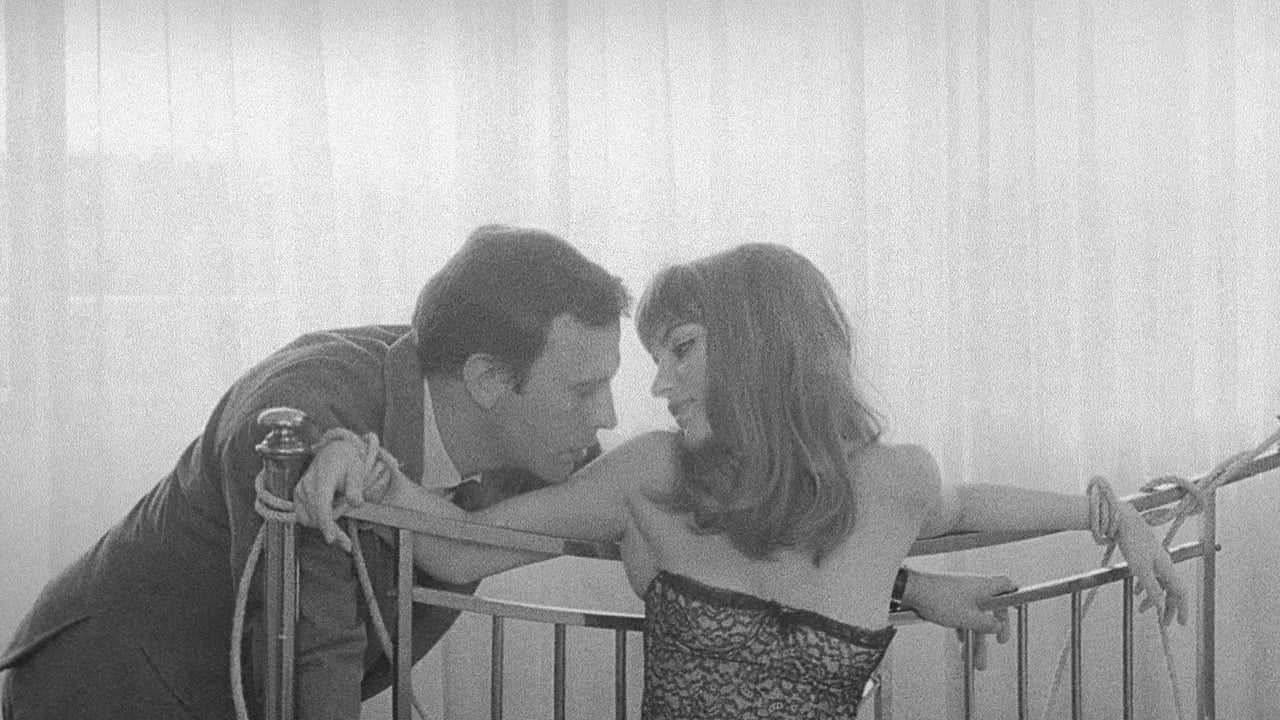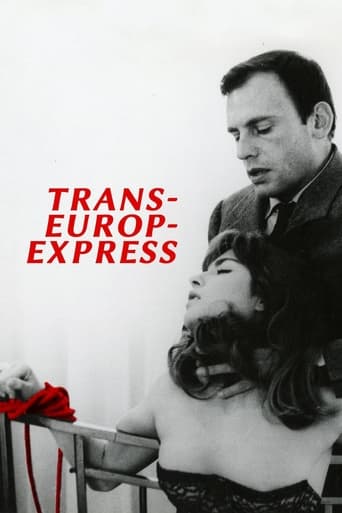

I would like to see someone produce a spoiler on this garbage (and, incidentally, probably all that robbe-grillet filmed - i just picked this one as a representative of all). This is BS-artistry pure. Unfortunately there is Money in art and in film, if you can get away with it. You need some Beautiful women to take there cloths off, of course, and a good cinematographer helps a lot as well. The Pictures are well lit and what you see of the women isn't bad - but that's it. No original thought here, in fact no thought whatsoever. That's why BS-artists are BS-artists - they basically have nothing to say about anything. There heads are a black hole from which nothing of value can escape. Robbe-Grillet and others of his ilk give film a bad name. Trintignant could be good - he proved that in other films. Here, however, he was taken in by a con-man, which is the essence of a BS-artist.
... View MoreThe films of Alain Robbe-Grillet may be clever, intellectually stimulating and effective but they can also be over serious and difficult to watch. This one is almost a complete joy. Beautifully photographed in wonderfully crisp b/w it looks great throughout. The director and his wife appear as passengers on the famous train, travelling to Antwerp and decide to conjure up a spy story. The superb, Jean-Louis Trintignant is the main man here and would appear to be the puppet for their story. Certainly we see him carrying out the actions they dictate into their tape recording machine as he goes hither and thither around the great city, of which we see much. Indeed, Antwerp being a favourite city of mine is another reason for this being so pleasurable for me to watch. The biggest surprise for me here, was not the much heralded, though undeniably effective S&M sequences but the extent to which humour plays a part here. There is a Bond poster on the wall at one point, as well as a shot from a Goddard film and it would seem Mr Grillet is also having a bit of a go at the very genre itself. Marvellous.
... View MoreI had not heard of "Trans-Europ-Express" until a couple of months ago, and as soon as the film was available to me I eagerly got a hold of it, but put off watching it until today because I was under the impression that it was a 'difficult' movie and wanted to be in the mood for such a film. Much to my surprise, Alain Robbe-Grillet's "Trans-Europ-Express" is one of the most entertaining and involving films I've ever seen, managing to be cerebral and clever as can be while never giving into being impenetrable for the sake of being impenetrable.Robert McKee classifies "Trans-Europ-Express" as a 'nonplot' film, and even though the film has two separate 'plots', I suppose it would be accurate enough to say that it doesn't really focus on telling a story set in stone. Classifying the film by genre is equally difficult, it is a somewhat comical film-within-a-film, a mystery, an erotic thriller, and even an espionage film for a bit. Let's just say the fourth wall has never been used so well in a film."Trans-Europ-Express" is a playful, adventurous film which seems to want nothing more than to toy with as many genre conventions as it can, and Robbe-Grillet does that so very well here. What's most amazing about the film is that it works on all the levels it's supposed to work on. Furthermore, the acting is superb, the cinematography gorgeous, and Robbe-Grillet's direction captivating and always interesting. I found the use of music here excellent, but the sound mixing even more interesting. The attention to detail is wonderful.As many 'intimidating' films as I've seen, and as many of them that I have loved, I have to be in the right mood to see them. Perhaps the element of surprise with "Trans-Europ-Express" gave it an advantage, but this really is one of the greatest, most purely enjoyable films I've ever seen. Cerebral, clever, smart, and stylish, all without being too ambitious for its own good, "Trans-Europ-Express" is a movie for everyone and for all moods, a must-see inversion (and perversion) of genre conventions. All film buffs should enjoy this, but it might be of particular interest to one who likes the genres being toyed with here, and I love them.10/10
... View MoreThis film is a beautifully done story within a story --- film within a film. The author and friends take a train ride and begin to work out a film; its plot, its characters and their actions. As the story evolves the characters take on their own existence, reality becomes inverted; they weave their own story as author becomes audience.It is a taste of the 1960's thinking of the Michael Caine foreign intrigue films, The Orient Express not to mention the Manchurian Candidate. In a way it thumbs its nose at the genre.I saw it when it ran almost forty years ago and enjoyed it immensely. If you can find it --- check it out.
... View More